An Indian Border Security Force (BSF) soldier sits inside a truck upon arrival with others in Srinagar to join thousands of federal forces and local policemen already deployed in the Kashmiri capital to contain a 46-day-old unrest: photo by Tauseef Mustafa/AFP, 23 August 2016
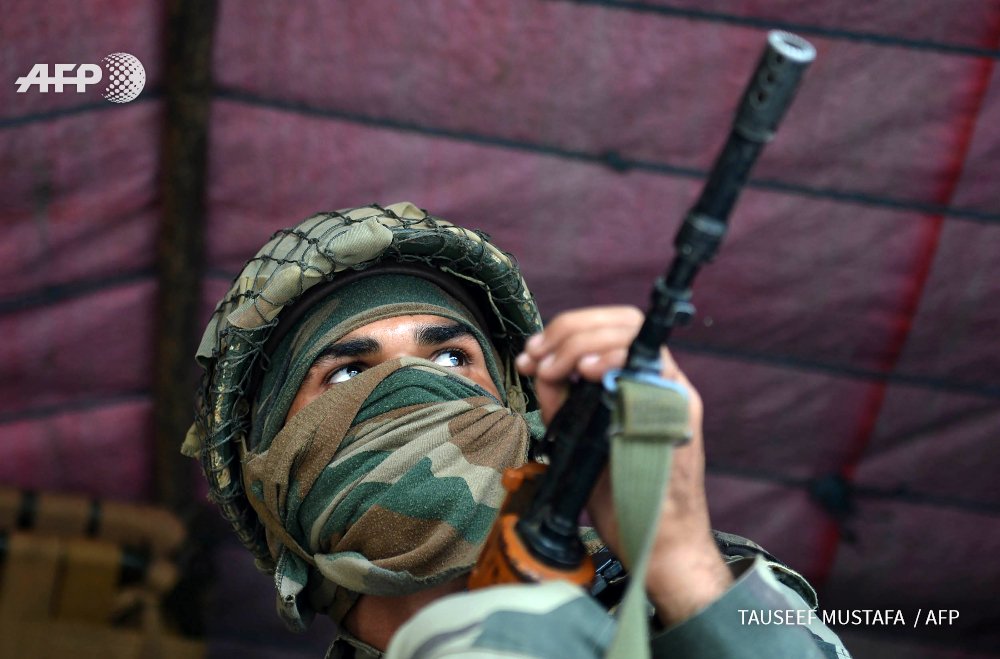
INDIA - Some 2,600 paramilitary troopers are being flown into Srinagar to contain 46 days unrest. By @TauseefMUSTAFA: image via Frédérique Geffard @fgeffardAFP, 23 August 2016

An Indian Border Security Force (BSF) soldier sits inside a truck upon arrival with others in Srinagar to join thousands of federal forces and local policemen already deployed in the Kashmiri capital to contain a 46-day-old unrest: photo by Tauseef Mustafa/AFP, 23 August 2016

Indian Border Security Force deployed In Srinagar#Kashmir August 23, 2016: image via Faisal Khan @lookaround81, 21 August 2016

Indian Border Security Force deployed In Srinagar#Kashmir August 23, 2016: image via Faisal Khan @lookaround81, 21 August 2016

Fearless Irfan who was killed by Indian security forces on August 21, 2016: image via Faisal Khan @lookaround81, 22 August 2016
Kashmir: morality and Indian denial: Imtiaz Gul, Kashmir Watch, 24 August 2016
The Maharaja of Kashmir imposed a 12 day curfew between 24 September-5 October
in 1931. Two years earlier, the then Prime Minister of Kashmir Sir
Albion Banerjee, a non-Kashmiri (non-Muslim) had resigned following
disagreement with Maharaja of Kashmir and did not wish to be part of the
system. He described the living conditions of Muslims as follows: “Jammu and
Kashmir State is labouring under many disadvantages, with a large
Mohammedan population absolutely illiterate, labouring under poverty and
very low economic conditions of living in the villages, and
particularly governed like dumb driven cattle. There is no touch between
the Government and the people, no suitable opportunity for representing
grievances… The administration has at present little or no sympathy
with the people’s wants and grievances”.
And in 2016 -- the elected Muslim Kashmiri representatives, led
by Chief Minister, MS Mehbooba Mufti, helplessly watch their electorate
endure curfew for 44 consecutive days, suffer fatal injuries from pellet
guns which have killed, maimed and blinded many Kashmiris, including
women and children.
Not a single soul has had the courage or decency to resign in protest against the wave of violence.
Albion Banerjee resigned on moral grounds. Today this ground is part
of international law and people have a Right to Object/refuse on the
basis of conscience. Mohammad Ali refused to go to war in Vietnam and
many young Israeli soldiers have refused to fire at innocent
Palestinians to the chagrin of Israeli government.
To this context Jammu and Kashmir Council for Human Rights wrote a
letter to MS Mehbooba Mufti Chief Minister on August 21, reminding her
of obligations under oath to the people who voted her into power.
The letter reminds that the “Indian army had been granted a temporary
admission by the Government of Jammu and Kashmir (based at Srinagar) to
perform four duties. The Indian army was also placed under three restraints
by UN Security Council Resolution of April 21, 1948. The temporary
admission is pending adjudication under a UN-supervised plebiscite,
also promised by premier Nehru."
The temporary admission has “degenerated into an occupation and the army remains at variance to its role identified by late Sheikh Abdullah at the UN Security Council in February 1948,” the letter says.
The temporary admission has “degenerated into an occupation and the army remains at variance to its role identified by late Sheikh Abdullah at the UN Security Council in February 1948,” the letter says.
The Jammu and Kashmir assembly (government), too, remains under the
caution of UN Security Council Resolution of 30 March 1951 because it
represents only one part of the territory, reaffirmed under the article
48 of Jammu and Kashmir Constitution.
“You continue to accrue the criminal liability for the erring behaviour of security forces and police,” the Council reminds Ms Mehbooba, underlining that “by virtue of the chain of command of the erring soldier and the erring integrated security” the Chief Minister is making herself liable for all the crimes and atrocities committed against the people on the Indian side of Jammu and Kashmir.
“You continue to accrue the criminal liability for the erring behaviour of security forces and police,” the Council reminds Ms Mehbooba, underlining that “by virtue of the chain of command of the erring soldier and the erring integrated security” the Chief Minister is making herself liable for all the crimes and atrocities committed against the people on the Indian side of Jammu and Kashmir.
The letter goes on to insist the Jammu and Kashmir assembly has lost the moral
authority to be in office any more and hence should resign and join in
the protest of the common man and woman. It also demands that the government terminate
the bilateral agreement made with the government of India and reinstate the
visa requirement (Permit System) for Indian citizens in the State.
Even though they are coming from reputed Kashmiri jurists, most Indians are
likely to laugh these demands off, particularly when scores of them --
led by premier Modi -- have jumped to equate Balochistan with Kashmir,
forgetting that the former is a fully integrated federal unit, with
equal constitutional status, unlike Kashmir which remains on the UN
agenda with special status in the Indian constitution to union under
Article 370.
But given the global geo-political interests, no amount of deaths and
invalidities caused by state guns in the Indian Kashmir are likely to
shake conscience, particularly when all Kashmiris are being branded as
terrorists by all those who insist the state is an integral part of
India. None of the major powers has winked so far on the spate of violence,
either out of apathy or commercial interests tied to India.
This situation serves as a reminder for Pakistan too to collectively
work for alleviating grievances and engage with reconcilable Baloch
groups. Only through engagement can Pakistan take the sting out of the
campaign against state excesses. No harm in admitting mistakes and
taking corrective measures in the larger national interest. Also, let
the Kashmiris fight it out themselves and remind the world of legal
instruments that support their cause. Don’t invoke any jaish or lashkars as they not only dilute the objectives but also discredit a legitimate nationalist movement.
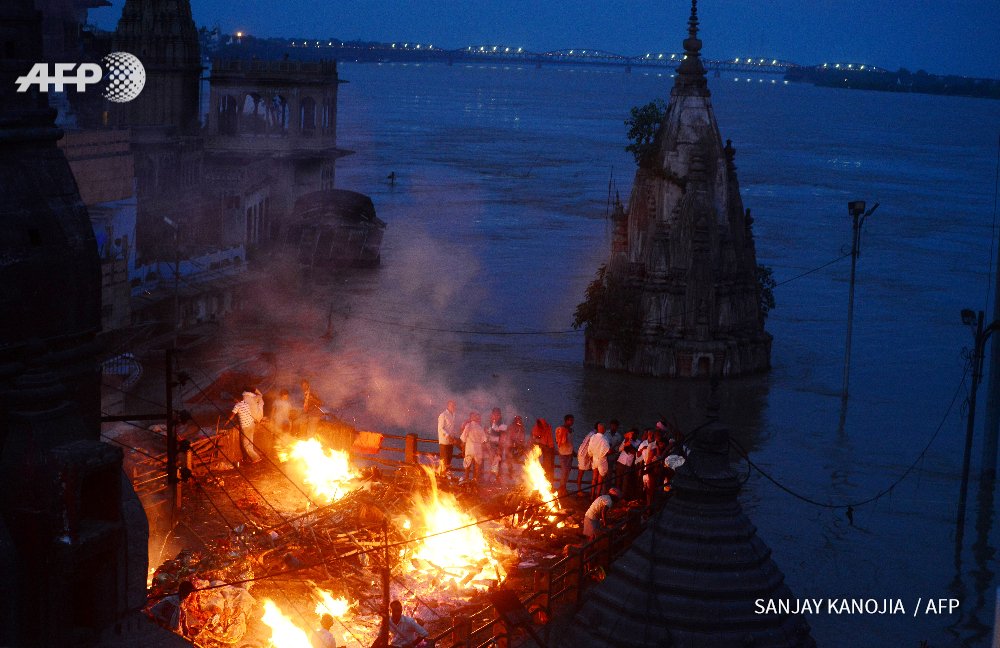
INDIA - Cremation is performed on roof of building overlooking The Manikarnika Ghat in Varanasi. By @sanjaykanojia07: image via Frédérique Geffard @fgeffardAFP, 23 August 2016
Kashmir: Two-pronged approach to defang jihadis: Political settlement only after secessionist guns are silenced (excerpts): Virenda Kapoor, Sunday Guardian, 13 August 2016
A handful of militants cannot claim to supersede the
stake that every Indian has in Kashmir. Kashmiris alone do not have a
stake in Kashmir. Every Indian has.
... There is a great falsity abroad that only those who chant slogans of azaadi and pelt stones and other missiles at the security forces have a say in what happens in and to Kashmir. You break Kashmir. And you wreck the secular foundations of the Indian state. Simultaneously. Are “intellectual terrorists” ready for that? Or maybe some of them are, for they are so avant garde in their views that the sanctity of India as a nation-state evokes little love, little concern. They are happy feathering their own cocooned nests with borrowed anarchist and post-nationalist ideas.
...Let us be clear. History of insurgencies, home grown or foreign-inspired, has one common thread running through them all. Security forces need to be able to establish an upper hand before any negotiated settlement is possible. We, on the other hand, have always forced the security forces to fight the well-armed jihadi networks with one hand tied behind their backs. The point is that for the Kashmir problem to be settled we need to first ensure that the security forces “settle” the jihadis. Only then a political settlement can be discussed. But we reverse the order, thus allowing the thugs to talk from a position of strength.
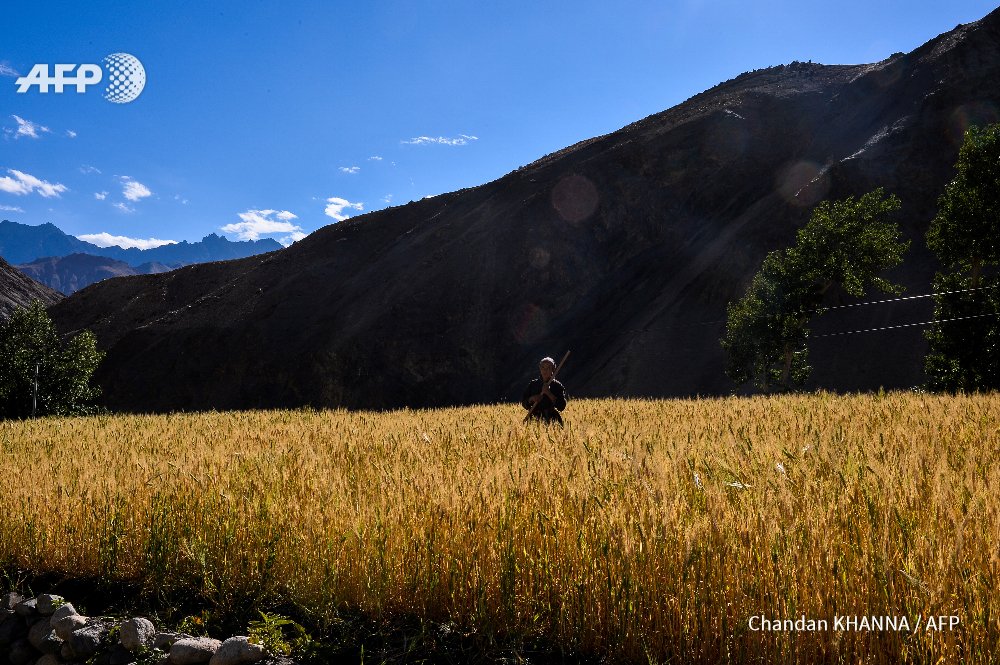
#INDIA A farmer works in a field of barley at the Hemis Shukpachan village in Ladakh by @Chandanphoto #AFP: image via Catherine Moreau @CatherineMorea8, 23 August 2016
... There is a great falsity abroad that only those who chant slogans of azaadi and pelt stones and other missiles at the security forces have a say in what happens in and to Kashmir. You break Kashmir. And you wreck the secular foundations of the Indian state. Simultaneously. Are “intellectual terrorists” ready for that? Or maybe some of them are, for they are so avant garde in their views that the sanctity of India as a nation-state evokes little love, little concern. They are happy feathering their own cocooned nests with borrowed anarchist and post-nationalist ideas.
...Let us be clear. History of insurgencies, home grown or foreign-inspired, has one common thread running through them all. Security forces need to be able to establish an upper hand before any negotiated settlement is possible. We, on the other hand, have always forced the security forces to fight the well-armed jihadi networks with one hand tied behind their backs. The point is that for the Kashmir problem to be settled we need to first ensure that the security forces “settle” the jihadis. Only then a political settlement can be discussed. But we reverse the order, thus allowing the thugs to talk from a position of strength.

#INDIA A farmer works in a field of barley at the Hemis Shukpachan village in Ladakh by @Chandanphoto #AFP: image via Catherine Moreau @CatherineMorea8, 23 August 2016
IoK and the 'Pro-Azadi' Indian Left: Charity Is Not Solidarity (excerpt): Pothik Ghosh, Beyond Capital, 17 July 2016
There
is something Indian mainlanders outraged by the unspeakable brutalities
inflicted on Kashmir by the Indian occupation need to realise.
Kashmir’s national liberation struggle needs neither the charity of
their teary-eyed pity for the plight of Kashmiris; nor the slightly more
honourable philanthropy of directing their self-flagellating anger and
outrage, abstractly and impotently, at the Indian state and its brutal
occupation. What such mainlanders need to actually give is the
non-exchangeable gift of solidarity to the Kashmiri movement. And that
is precisely what they have failed to offer. That such solidarity is
fundamentally distinct from -- nay radically opposed to -- patronising
sympathy for the suffering victims of Kashmir is something one can
hardly overstate.
Unfortunately, almost all mainlanders who claim to be in solidarity with the Kashmiri struggle against Indian occupation have the two badly mixed up. (As for the politically correct Indian liberal, who is enraged only and mainly by the human-rights abuses carried out in the Valley, the less said the better.)
Sympathy and charity are constitutive of an economy, at once symbolic and political, of exchange and power. And that does not change even if one chooses to construe them, unwittingly or otherwise, as solidarity. If anything, such conflation of solidarity with sympathy and philanthropy amounts to articulating the existing hierarchised socio-political relation between Indian mainland and the IoK (Indian occupied Kashmir) in yet another register. That serves to legitimise and reinforce -- admittedly by other, apparently more consensual means -- both that relation and the military occupation constitutive of it. It’s time one clearly understood the difference, and learned to disentangle one from the other. Solidarity is not a sentiment to be abstractly expressed and extended. It is a politics that has to be produced as a concrete strategy and materiality.
Frantz Fanon, while criticising the ‘solidarity’ extended by 'French intellectuals and democrats' to the Algerian struggle against French occupation, underscored precisely that.
In an article, ‘French Intellectuals and Democrats and the Algerian Revolution’, he writes:
…French intellectuals and democrats have periodically addressed themselves to the FLN.
Most of the time they have proffered either political advice or criticisms concerning this or that aspect of the war of liberation. This attitude of the French intelligentsia must not be interpreted as the consequence of an inner solidarity with the Algerian people.
This advice and these criticisms are to be explained by the ill-repressed desire to guide, to direct the very liberation movement of the oppressed.
Thus can be understood the constant oscillation of the French democrats between a manifest or latent hostility and the wholly unreal aspiration to militate ‘actively to the end.’ Such a confusion indicates a lack of preparation for the facing of concrete problems and a failure on the part of French democrats to immerse themselves in the political life of their own country.
The question that has been driving many mainland Indians in their self-proclaimed solidarity with the Kashmiri national liberation struggle, is the following: what can and should they do for Kashmir and its struggle against occupation? However, in order to produce solidarity as a strategy and materiality of politics they would do well to reverse the question: what is the Kashmiri movement against Indian occupation doing -- or can potentially do -- for the everyday struggles of the masses in the Indian mainland? The answer to that is something they need to build on. Only then will their sympathy for the suffering people of IoK cease to be the abstract charitable pity it is condemned to be, and become a concretely-grounded empathy for the sufferings of comrades with whom they share a concrete horizon of internationalism of struggles.
Unfortunately, almost all mainlanders who claim to be in solidarity with the Kashmiri struggle against Indian occupation have the two badly mixed up. (As for the politically correct Indian liberal, who is enraged only and mainly by the human-rights abuses carried out in the Valley, the less said the better.)
Sympathy and charity are constitutive of an economy, at once symbolic and political, of exchange and power. And that does not change even if one chooses to construe them, unwittingly or otherwise, as solidarity. If anything, such conflation of solidarity with sympathy and philanthropy amounts to articulating the existing hierarchised socio-political relation between Indian mainland and the IoK (Indian occupied Kashmir) in yet another register. That serves to legitimise and reinforce -- admittedly by other, apparently more consensual means -- both that relation and the military occupation constitutive of it. It’s time one clearly understood the difference, and learned to disentangle one from the other. Solidarity is not a sentiment to be abstractly expressed and extended. It is a politics that has to be produced as a concrete strategy and materiality.
Frantz Fanon, while criticising the ‘solidarity’ extended by 'French intellectuals and democrats' to the Algerian struggle against French occupation, underscored precisely that.
In an article, ‘French Intellectuals and Democrats and the Algerian Revolution’, he writes:
…French intellectuals and democrats have periodically addressed themselves to the FLN.
Most of the time they have proffered either political advice or criticisms concerning this or that aspect of the war of liberation. This attitude of the French intelligentsia must not be interpreted as the consequence of an inner solidarity with the Algerian people.
This advice and these criticisms are to be explained by the ill-repressed desire to guide, to direct the very liberation movement of the oppressed.
Thus can be understood the constant oscillation of the French democrats between a manifest or latent hostility and the wholly unreal aspiration to militate ‘actively to the end.’ Such a confusion indicates a lack of preparation for the facing of concrete problems and a failure on the part of French democrats to immerse themselves in the political life of their own country.
The question that has been driving many mainland Indians in their self-proclaimed solidarity with the Kashmiri national liberation struggle, is the following: what can and should they do for Kashmir and its struggle against occupation? However, in order to produce solidarity as a strategy and materiality of politics they would do well to reverse the question: what is the Kashmiri movement against Indian occupation doing -- or can potentially do -- for the everyday struggles of the masses in the Indian mainland? The answer to that is something they need to build on. Only then will their sympathy for the suffering people of IoK cease to be the abstract charitable pity it is condemned to be, and become a concretely-grounded empathy for the sufferings of comrades with whom they share a concrete horizon of internationalism of struggles.
Protesters in India-controlled Kashmir after a young man Irfan Ahmed Wani died from being hit by a tear gas shell: image via AJ+ @ajplus, 22 August 2016
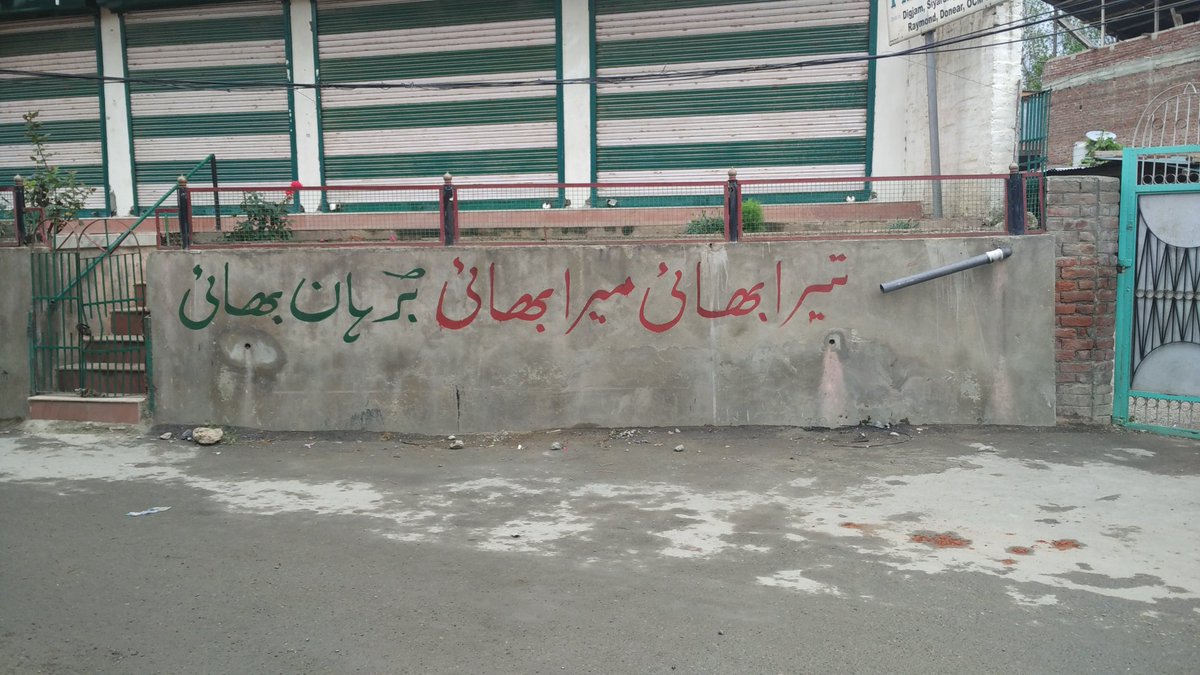
Forces remove pro-Burhan Wani graffiti in #Kashmir: image via Rouf Bhat @RoufBhat, 22 August 2016
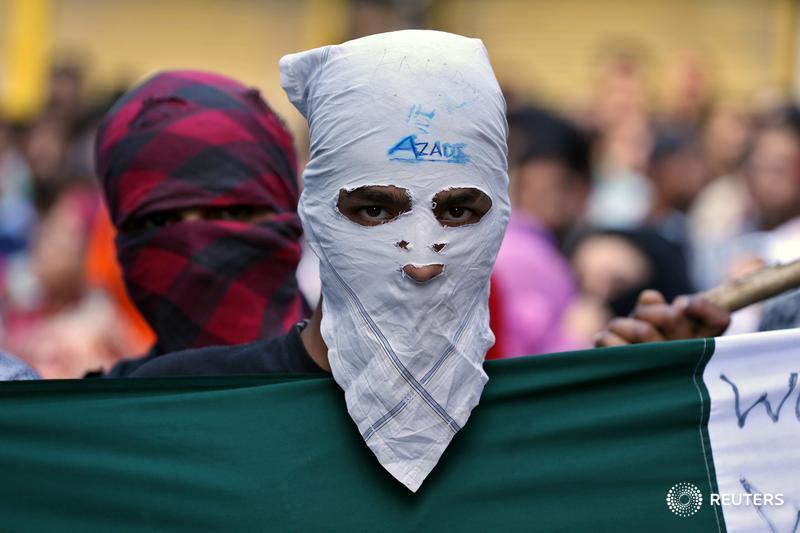
Masked youths attend a demonstration in Srinagar against the killing of English lecturer, Shabir Ahmad, whom they say was killed by members of the security forces following weeks of violence in Kashmir. Photo Cathal McNaughton: image via Reuters India Photos @IndiaPhotos, 18 August 2016
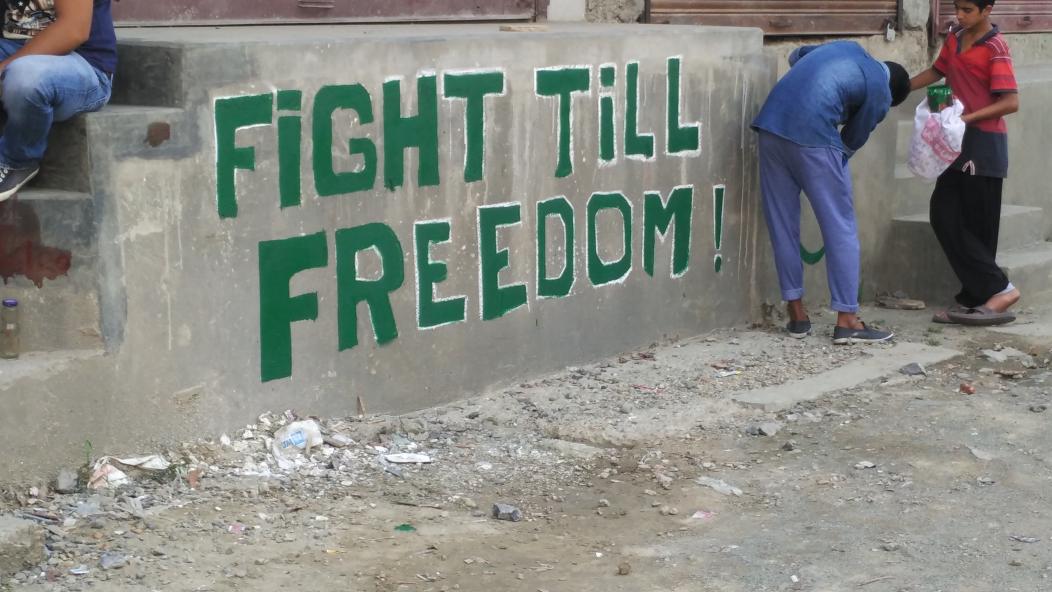
Indian Forces remove writings from the walls in #Kashmir: image via Rouf Bhat @RoufBhat, 22 August 2016
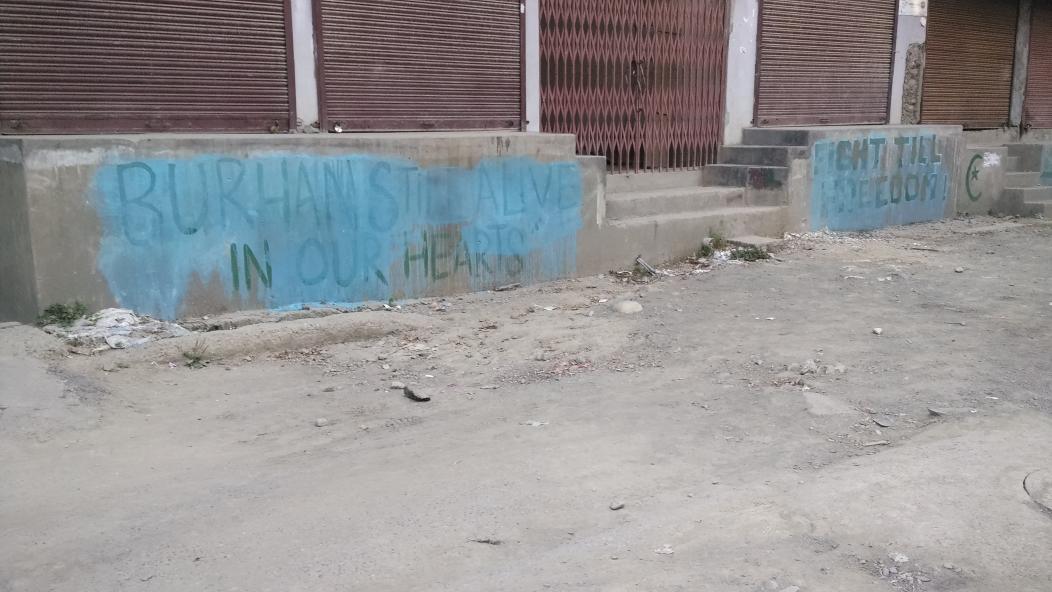
Indian Forces remove writings from the walls in #Kashmir: image via Rouf Bhat @RoufBhat, 22 August 2016
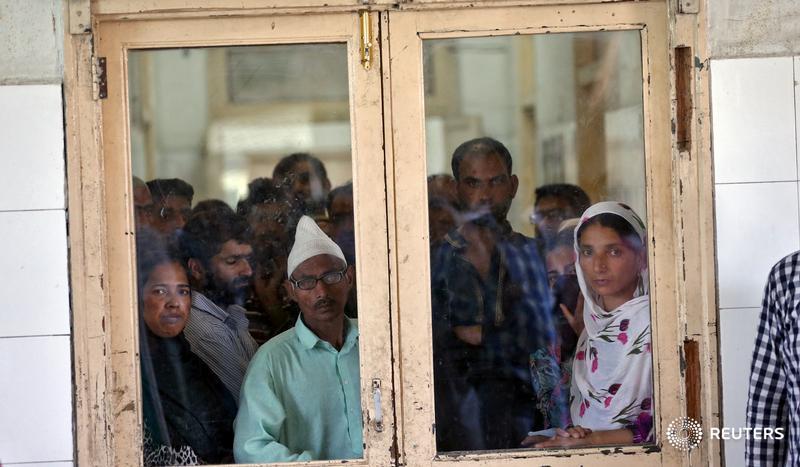
People wait for news at a hospital in Srinagar about family members whom they say were beaten by security forces near Srinagar following weeks of violence in Kashmir. Photo Cathal McNaughton: image via Reuters India Photos @IndiaPhotos, 18 August 2016
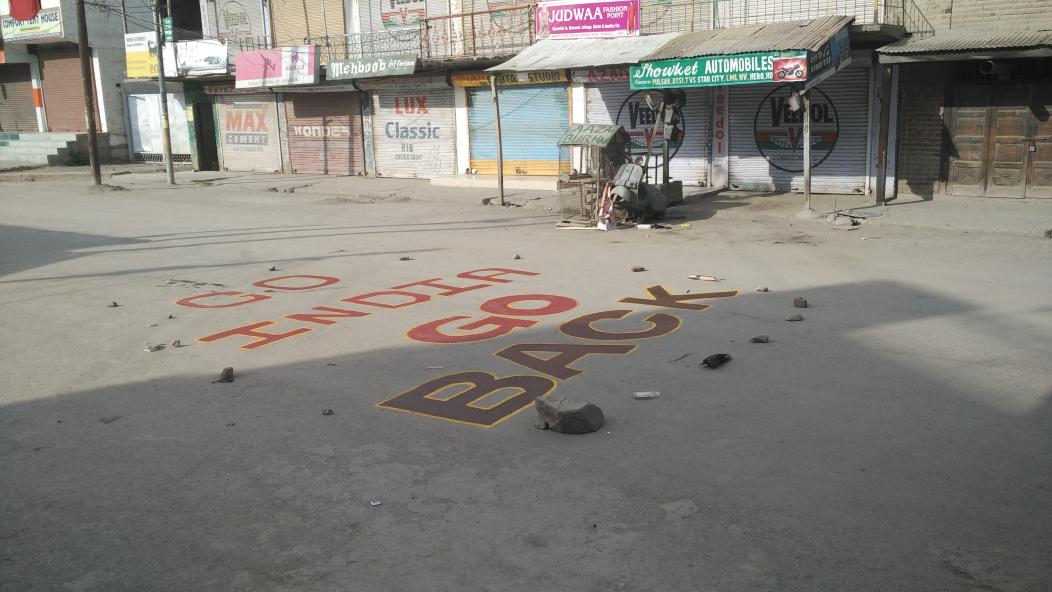
One more graffiti that was removed by forces: image via Rouf Bhat @RoufBhat, 22 August 2016
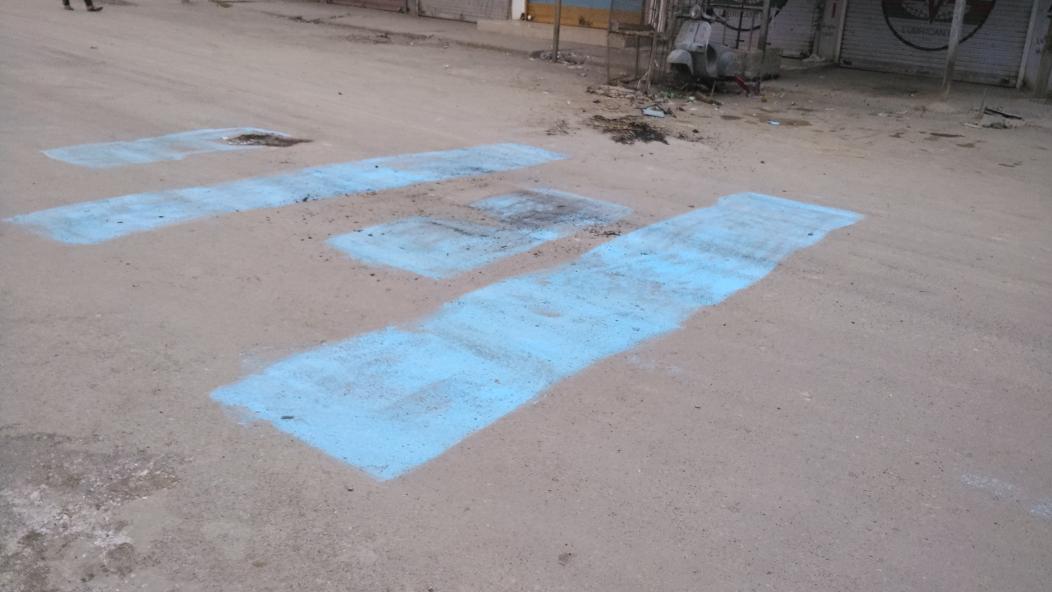
One more graffiti that was removed by forces: image via Rouf Bhat @RoufBhat, 22 August 2016
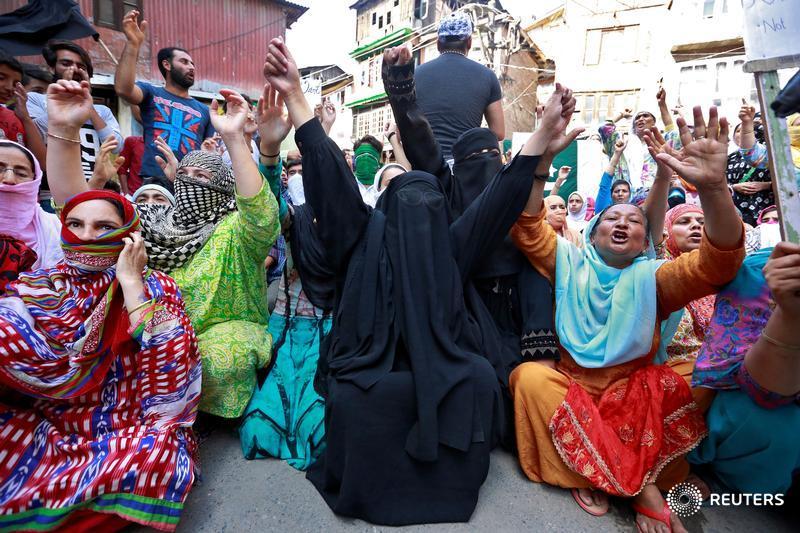
Women attend a demonstration in Srinagar against the killing of English lecturer, Shabir Ahmad, whom they say was killed by members of the security forces following weeks of violence in Kashmir. Photo Cathal McNaughton: image via Reuters India Photos @IndiaPhotos, 18 August 2016

Women react in the street in Srinagar following killings, beatings, suppression of protests: photo Cathal McNaughton: image via Reuters Live @ReutersLive, 5 August 2016
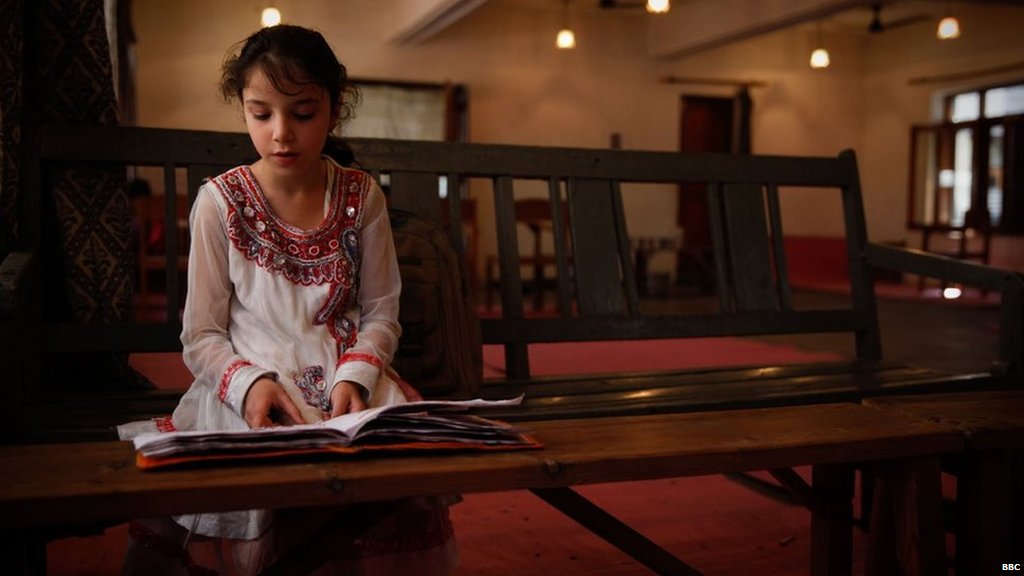
In pictures: Kashmir's 'curfew schools': image via BBC News Asia @BBCNewsAsia, 22 August 2016
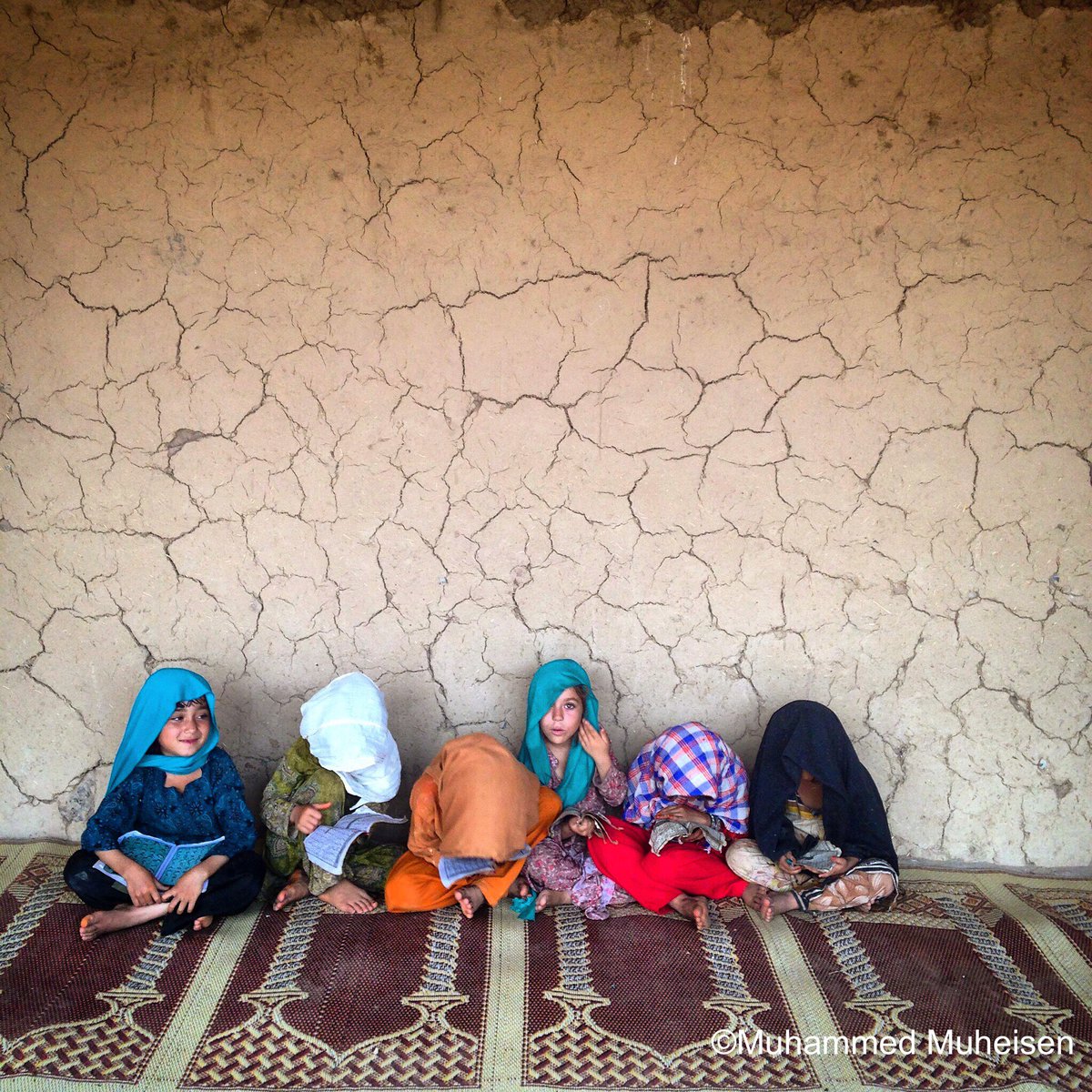
Afghan refugee girls at a makeshift school in Pakistan: image via Muhammed Muheisen @Muheisen81, 16 August 2016
Back to the School of Rubbish
German Chancellor Angela Merkel
and German Vice Chancellor, Economy and Energy Minister Sigmar Gabriel
hand over birthday flowers to State Minister at the Foreign Ministry
Michael Roth before the weekly cabinet meeting in Berlin: photo by Tobias Schwarz/AFP, 24 August 2016
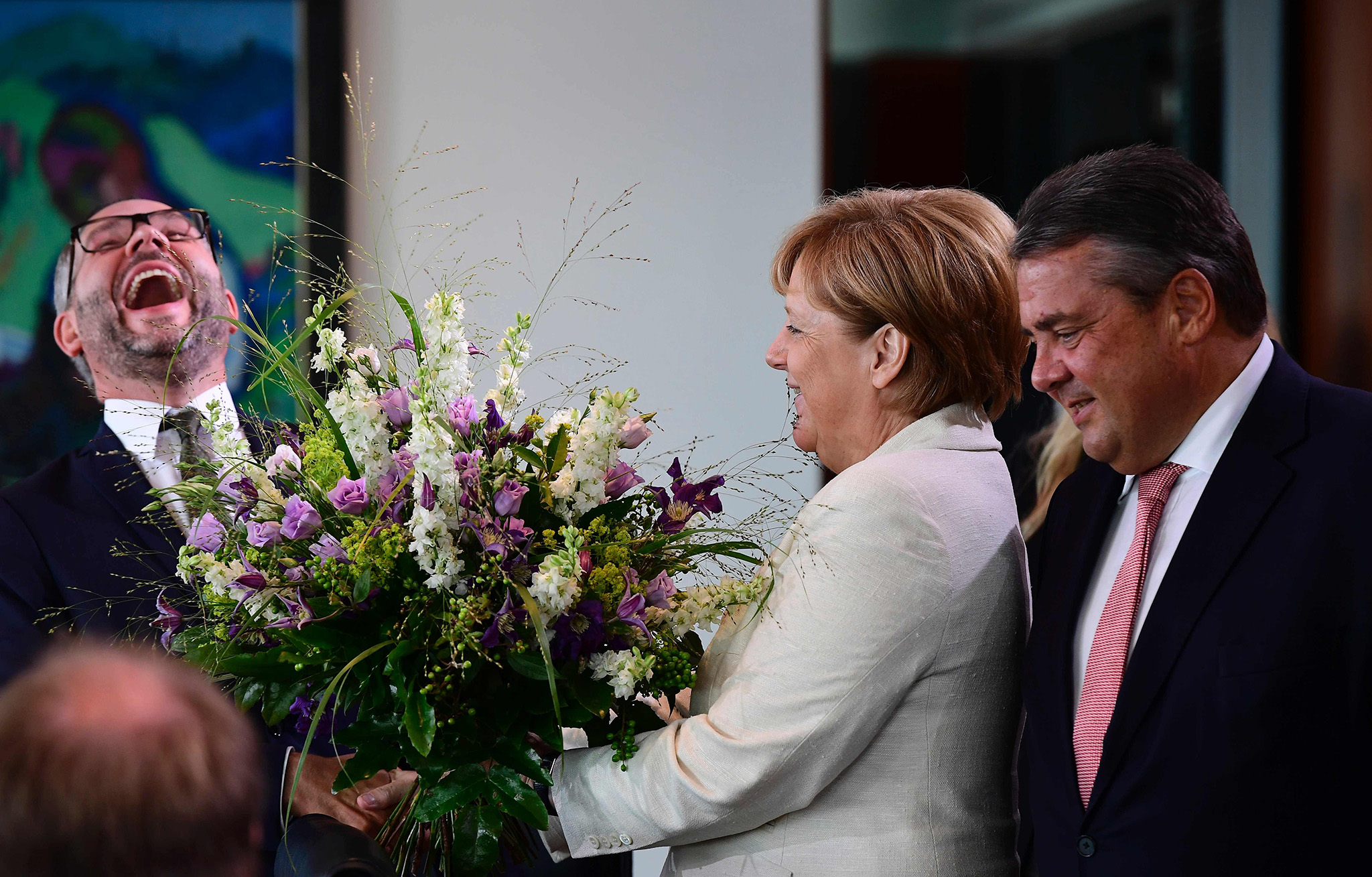
German Chancellor Angela Merkel and German Vice Chancellor, Economy and Energy Minister Sigmar Gabriel hand over birthday flowers to State Minister at the Foreign Ministry Michael Roth before the weekly cabinet meeting in Berlin: photo by Tobias Schwarz/AFP, 24 August 2016

German Chancellor Angela Merkel and German Vice Chancellor, Economy and Energy Minister Sigmar Gabriel hand over birthday flowers to State Minister at the Foreign Ministry Michael Roth before the weekly cabinet meeting in Berlin: photo by Tobias Schwarz/AFP, 24 August 2016
Garbage pickers ride a donkey cart while looking for recyclable materials at a rubbish dump in the outskirts of Baghdad, Iraq: photo by Khalid al Mousily/Reuters, 23 August 2016

Garbage pickers ride a donkey cart while looking for recyclable materials at a rubbish dump in the outskirts of Baghdad, Iraq: photo by Khalid al Mousily/Reuters, 23 August 2016
A rescue member (C) in full protective gear stands amongst South Korean soldiers wearing gas masks during an anti-terror drill on the sidelines of South Korea-US joint military exercise, called Ulchi Freedom, at a subway station in Seoul: photo by Jung Yeon-Je/AFP, 23 August 2016
 .
.A rescue member (C) in full protective gear stands amongst South Korean soldiers wearing gas masks during an anti-terror drill on the sidelines of South Korea-US joint military exercise, called Ulchi Freedom, at a subway station in Seoul: photo by Jung Yeon-Je/AFP, 23 August 2016

South Korean soldiers on patrol as women watch during an antiterror drill at Yoido Subway Station in Seoul: photo by Ahn Young-joon / AP, 23 August 2016
A member of the Kurdish police known as the Asayesh, observes enemy positions from a lookout point in the northeastern Syrian city of Hasakeh during ongoing fighting with regime forces: photo by Delil Souleiman/AFP, 23 August 2016
A member of the Kurdish police known as the Asayesh, observes enemy positions from a lookout point in the northeastern Syrian city of Hasakeh during ongoing fighting with regime forces: photo by Delil Souleiman/AFP, 23 August 2016
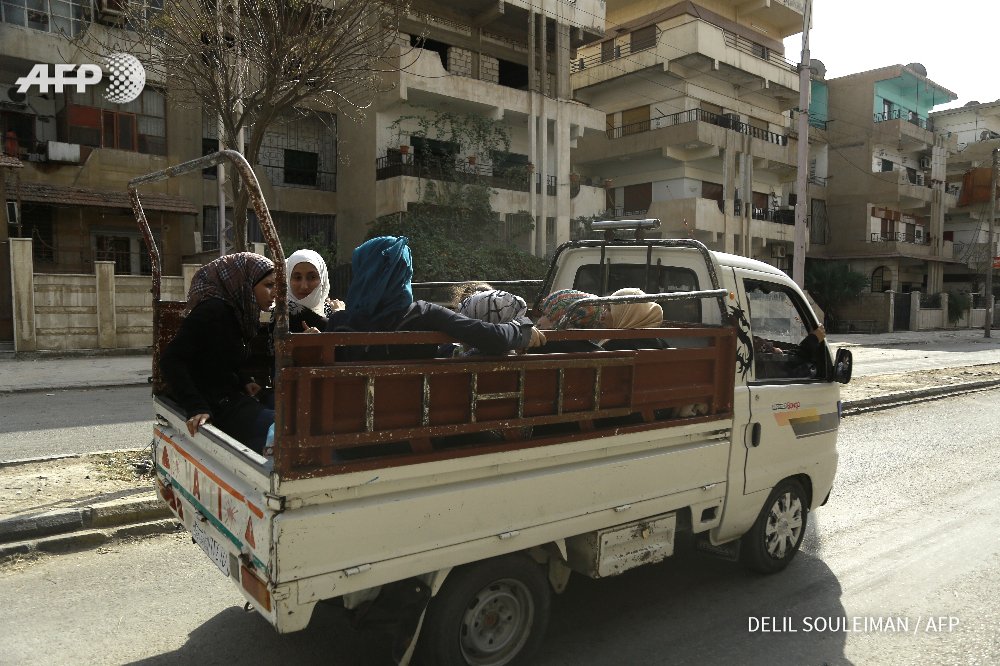
SYRIA - Civilians flee Hasakeh during fighting between Kurdish fighters and Syrian regime forces. By @DelilSouleman: image via Frédérique Geffard @fgeffardAFP, 23 August 2016
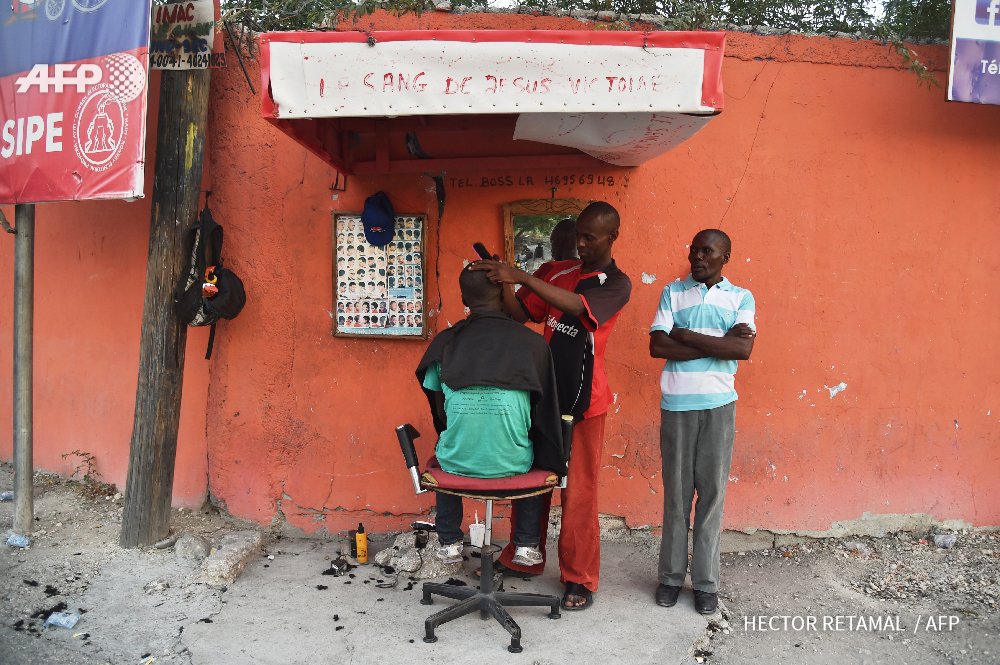
HAITI - A man gets his hair cut on by a barber on Delmas street in Port-au-Prince. By @hectorretamal #AFP: image via Frédérique Geffard @fgeffardAFP, 23 August 2016
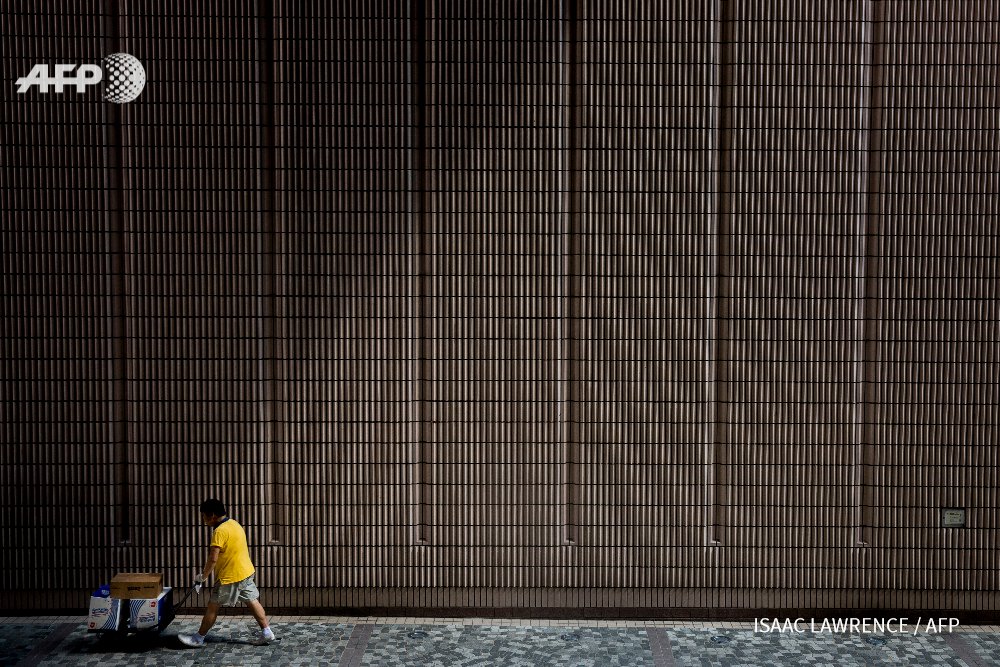
CHINA - A man walks past the Hong Kong Cultural Centre as he makes a delivery. By Isaac Lawrence #AFP: image via Frédérique Geffard @fgeffardAFP, 23 August 2016
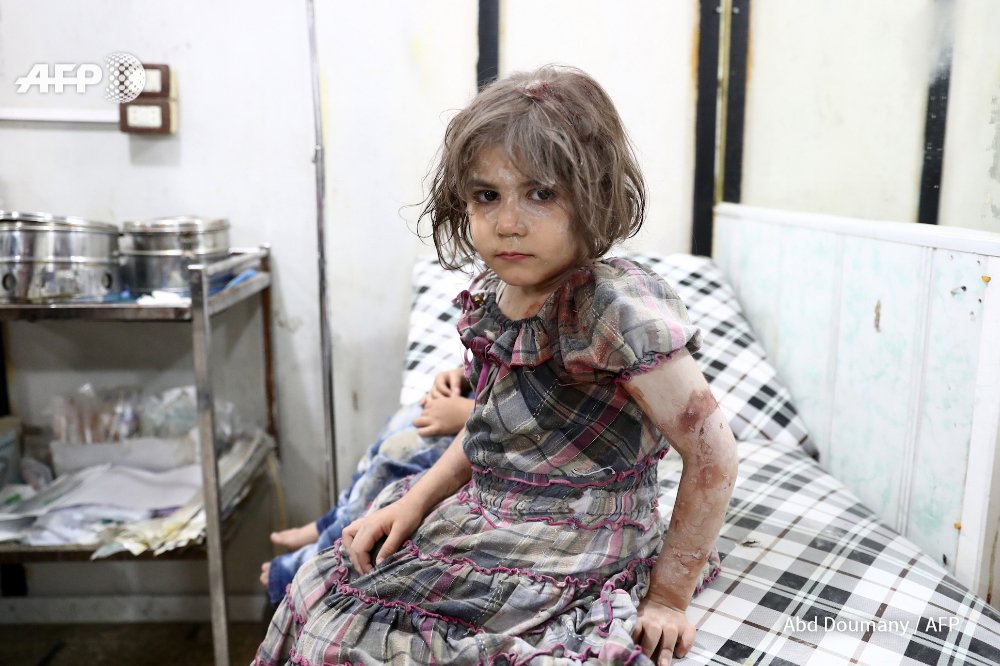
SYRIA - An injured child awaits treatment at makeshift hospital following reported air strike on Douma. By @AbdDoumany: image via Frédérique Geffard @fgeffardAFP, 23 August 2016
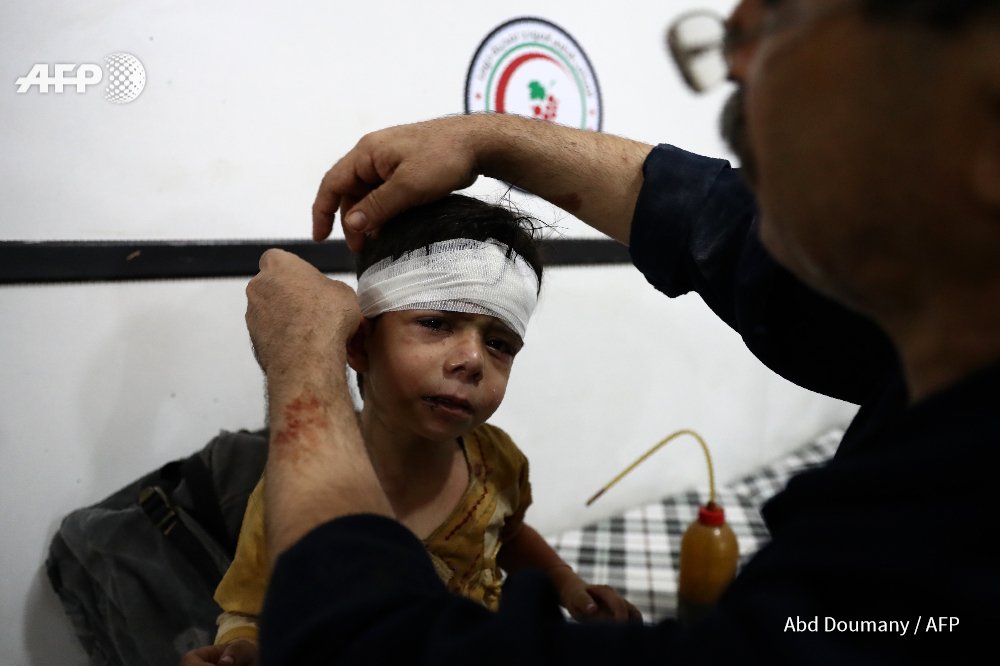
#Syria Injured Syrian child at makeshift hospital following a reported air strike on Douma. By @AbdDoumany #AFP: image via AFP Photo Department @AFP, 23 August 2016
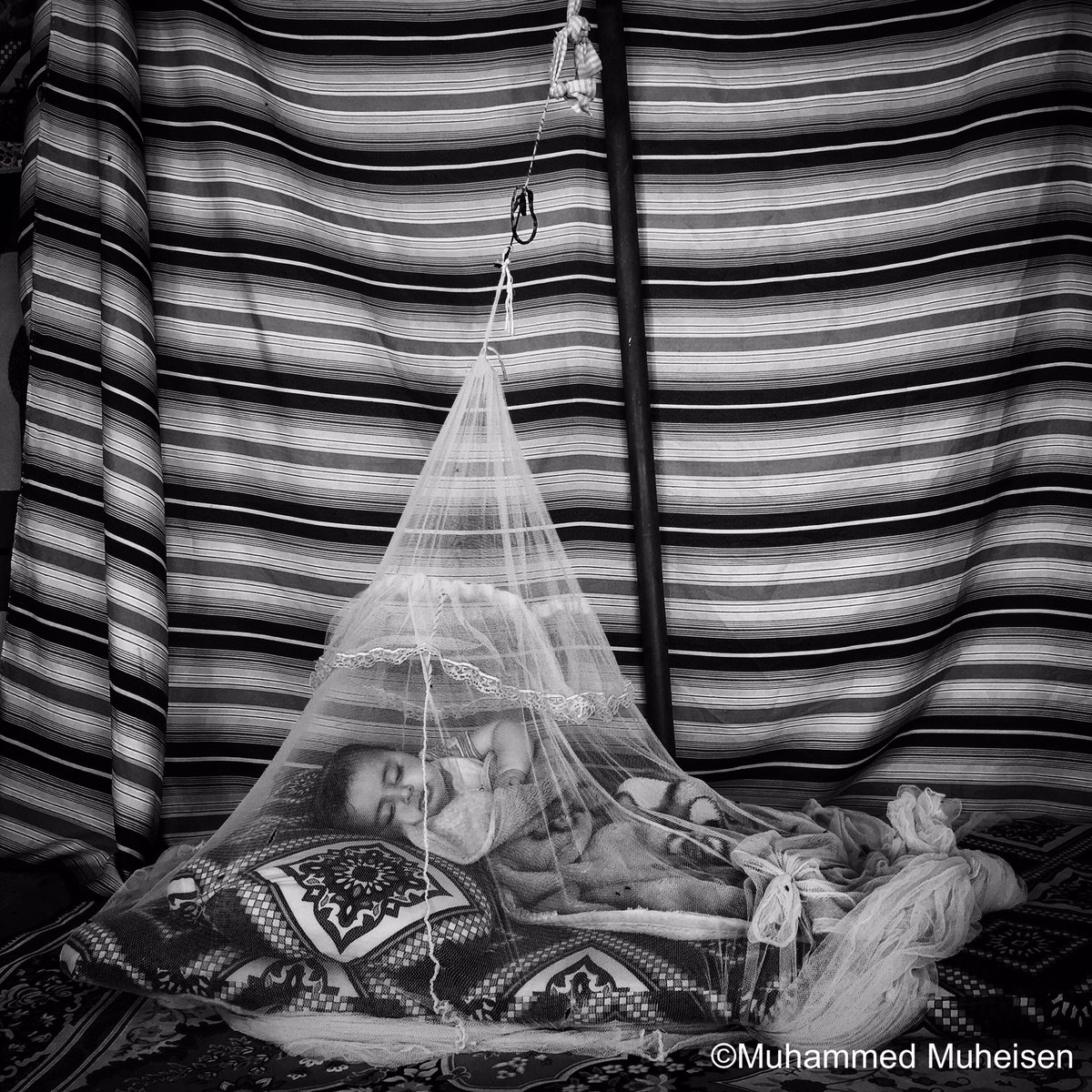
An angel under a mosquito net, seven-month old Syrian refugee Mariam Mohammed, in Jordan: image via Muhammed Muheisen @Muheisen81, 13 August 2016
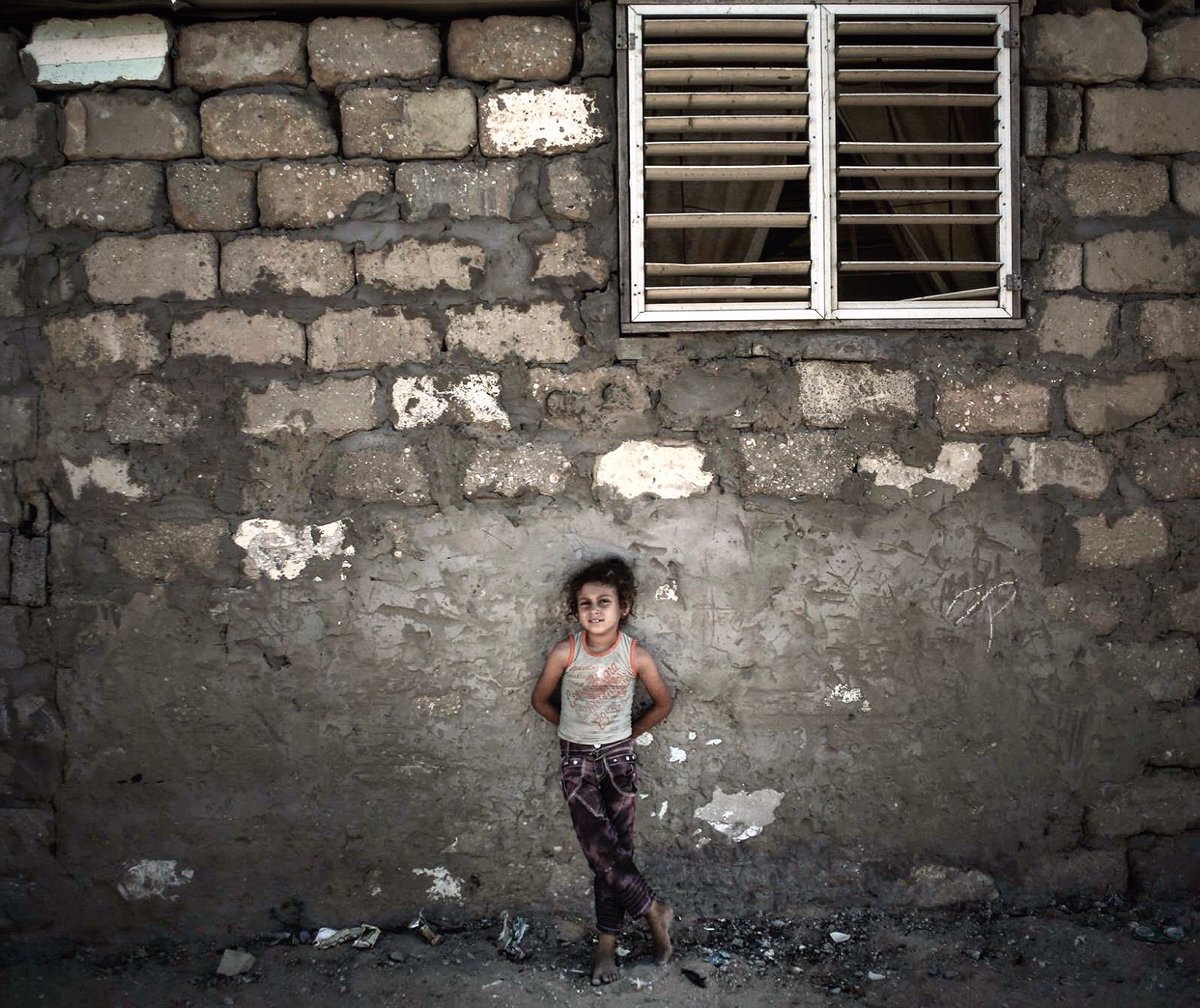
A barefoot Palestinian girl poses for a picture in el-Zohor slum, in KhanYounis, southern Gaza Strip. #KhalilHamra: image via khalil hamra @khalil_hamra, 30 July 2016
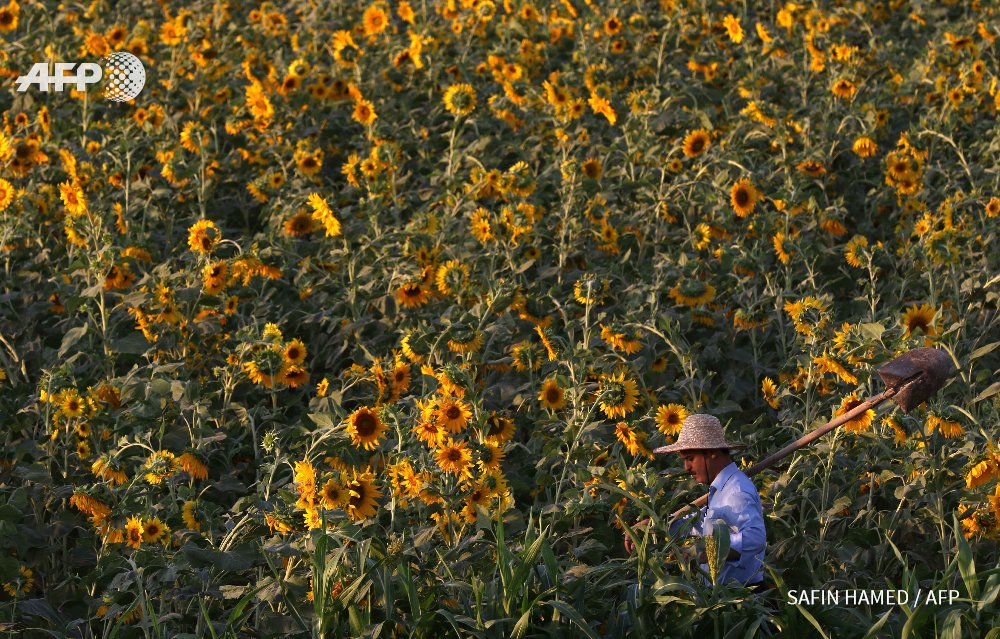
IRAQ - A Kurdish man harvests sunflowers in a field in the district of Raniya. By @safinphotoAFP: image via Frédérique Geffard @fgeffardAFP, 23 August 2016
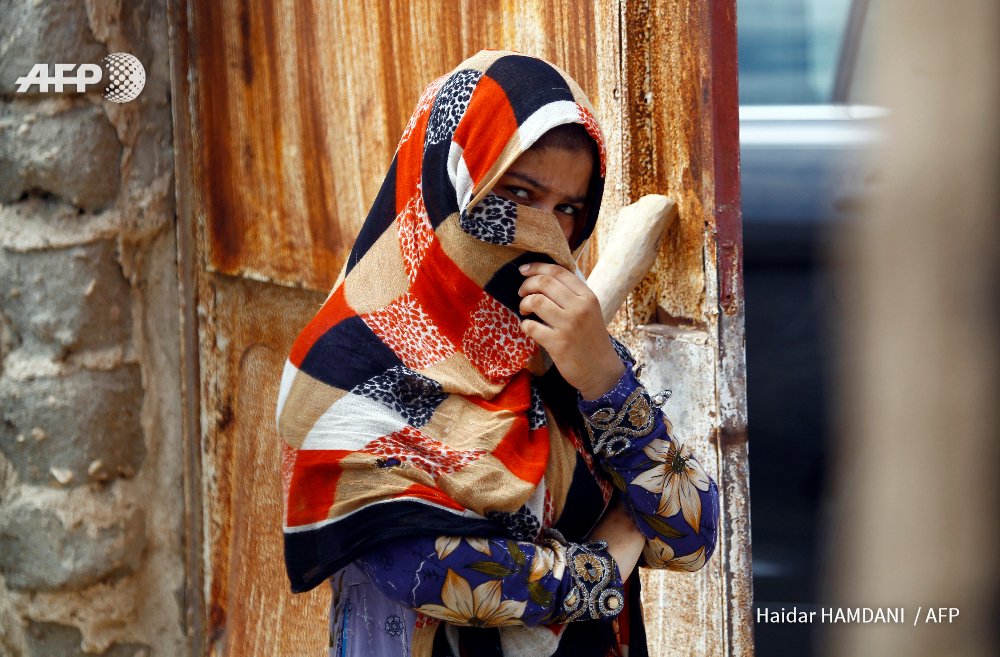
IRAQ - A young woman from the Ghajar (gypsy) community poses in the village of Diwaniyah. By @HaidarAfp #AFP: image via Frédérique Geffard @fgeffardAFP, 23 August 2016
Members of the ‘Radio City Rockettes’ perform during their annual ‘Christmas in August’ event outside of Radio City Music Hall on 6th Avenue in New York City. The Rockettes performed ‘Sleigh Ride’ in the street while traffic was stopped on 6th Avenue.: photo by Drew Angerer, 23 August 2016

Members of the ‘Radio City Rockettes’ perform during their annual
‘Christmas in August’ event outside of Radio City Music Hall on 6th
Avenue in New York City. The Rockettes performed ‘Sleigh Ride’ in the
street while traffic was stopped on 6th Avenue.: photo by Drew Angerer, 23 August 2016
An orangutan is paraded in a dress at a shopping mall in Kunming, Yunnan province, China: photo by China Daily/Reuters, 24 August 2016
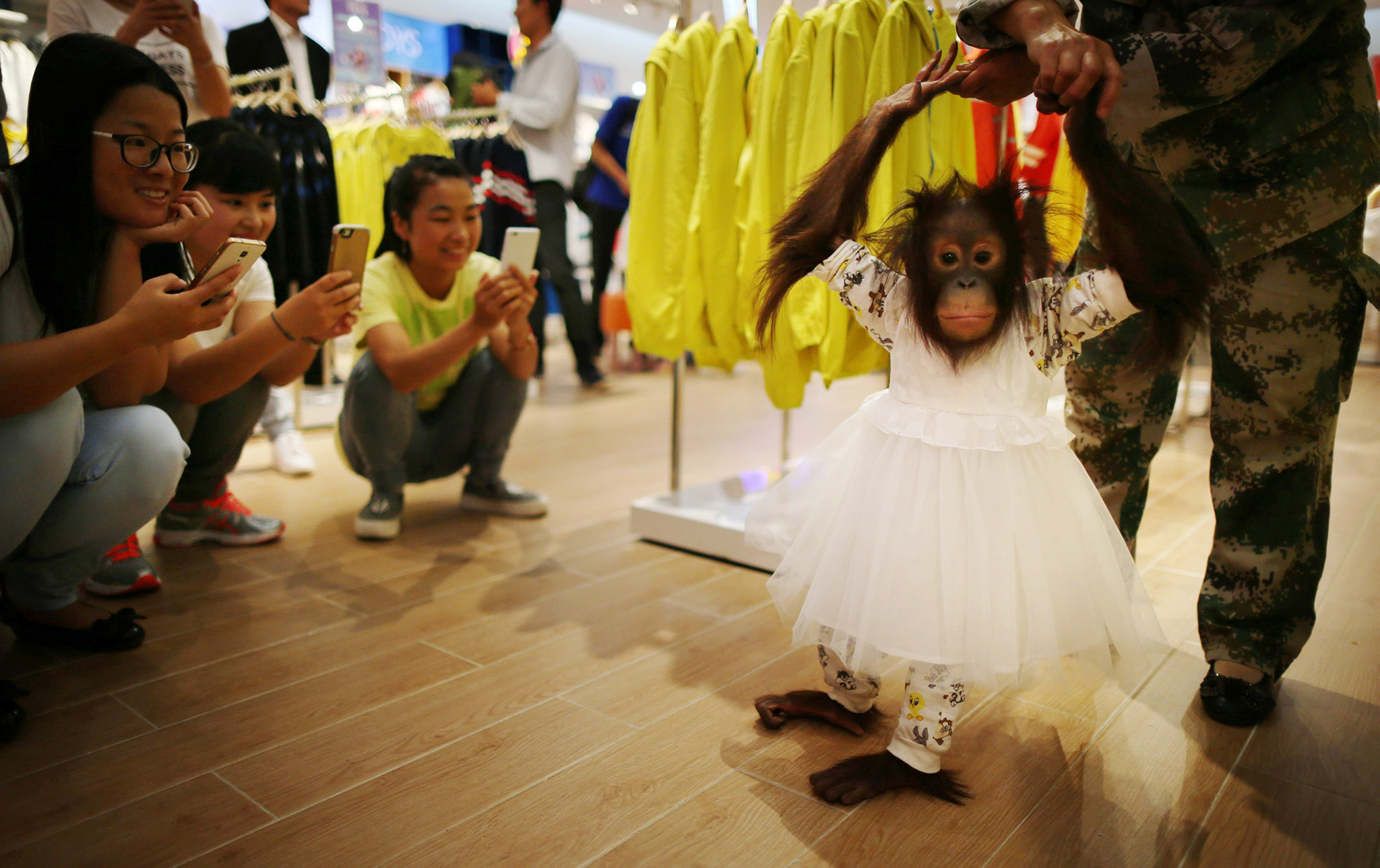
An orangutan is paraded in a dress at a shopping mall in Kunming, Yunnan province, China: photo by China Daily/Reuters, 24 August 2016
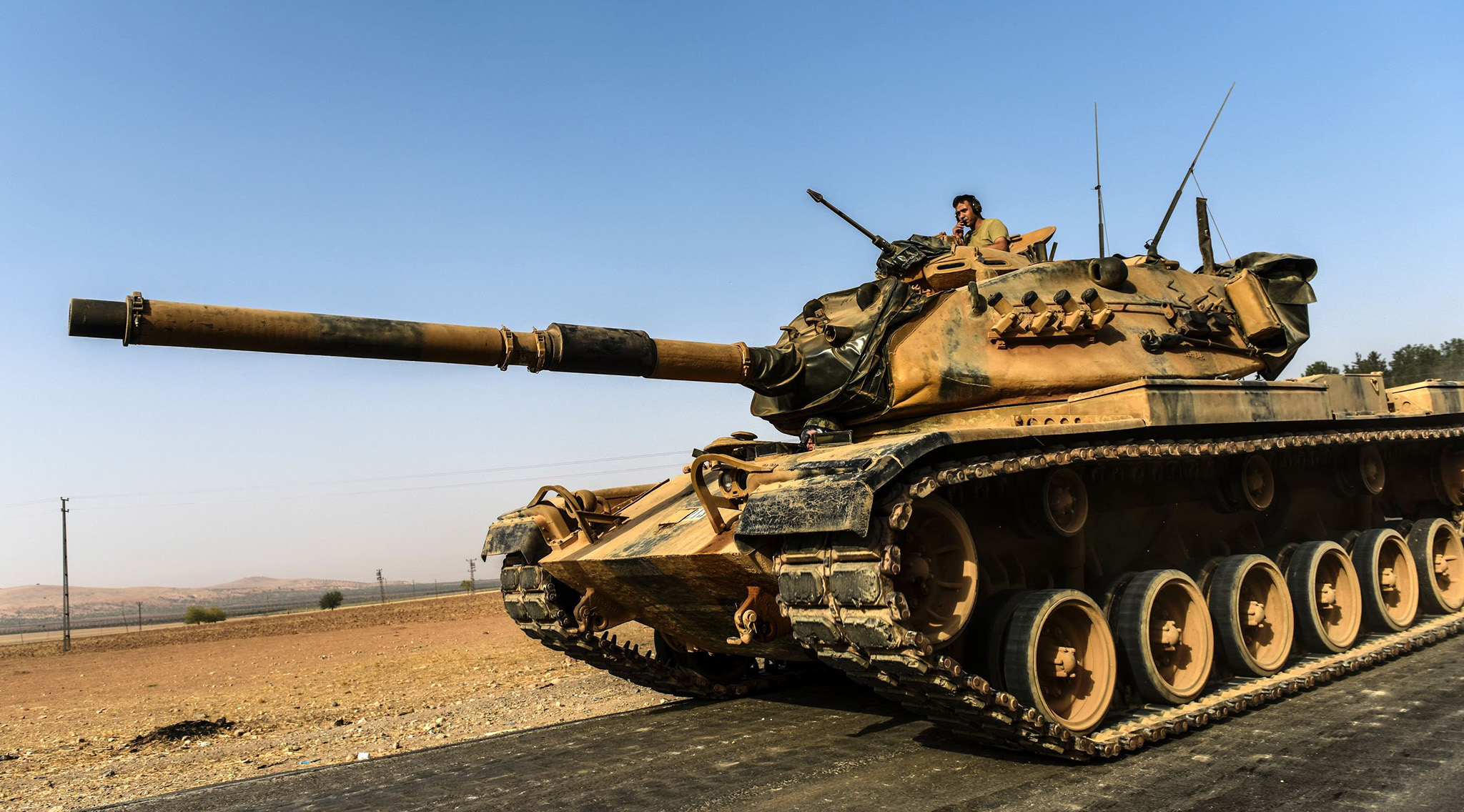
A Turkish army tank drives towards Syria in the Turkish border city of Karkamis, in the southern region of Gaziantep. Turkey’s army backed by international coalition air strikes launched an operation involving fighter jets and elite ground troops to drive Islamic State jihadists out of a key Syrian border town.: photo by Bulent Kilic/AFP, 24 August 2016

A Turkish army tank drives towards Syria in the Turkish border city of Karkamis, in the southern region of Gaziantep. Turkey’s army backed by international coalition air strikes launched an operation involving fighter jets and elite ground troops to drive Islamic State jihadists out of a key Syrian border town.: photo by Bulent Kilic/AFP, 24 August 2016
An orangutan is paraded in a dress at a shopping mall in Kunming, Yunnan province, China: photo by China Daily/Reuters, 24 August 2016

An orangutan is paraded in a dress at a shopping mall in Kunming, Yunnan province, China: photo by China Daily/Reuters, 24 August 2016

A Turkish army tank drives towards Syria in the Turkish border city of Karkamis, in the southern region of Gaziantep. Turkey’s army backed by international coalition air strikes launched an operation involving fighter jets and elite ground troops to drive Islamic State jihadists out of a key Syrian border town.: photo by Bulent Kilic/AFP, 24 August 2016

A Turkish army tank drives towards Syria in the Turkish border city of Karkamis, in the southern region of Gaziantep. Turkey’s army backed by international coalition air strikes launched an operation involving fighter jets and elite ground troops to drive Islamic State jihadists out of a key Syrian border town.: photo by Bulent Kilic/AFP, 24 August 2016



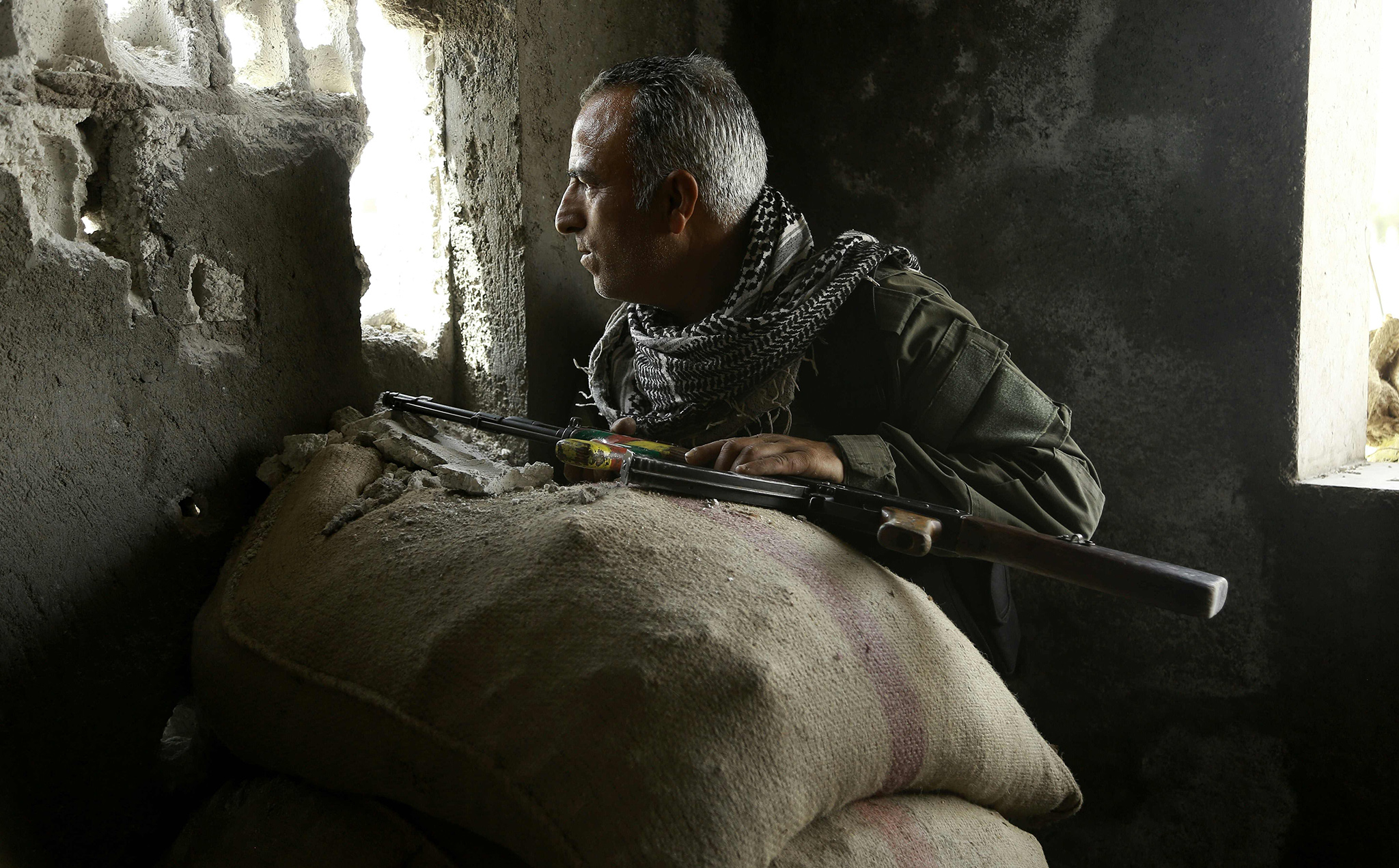
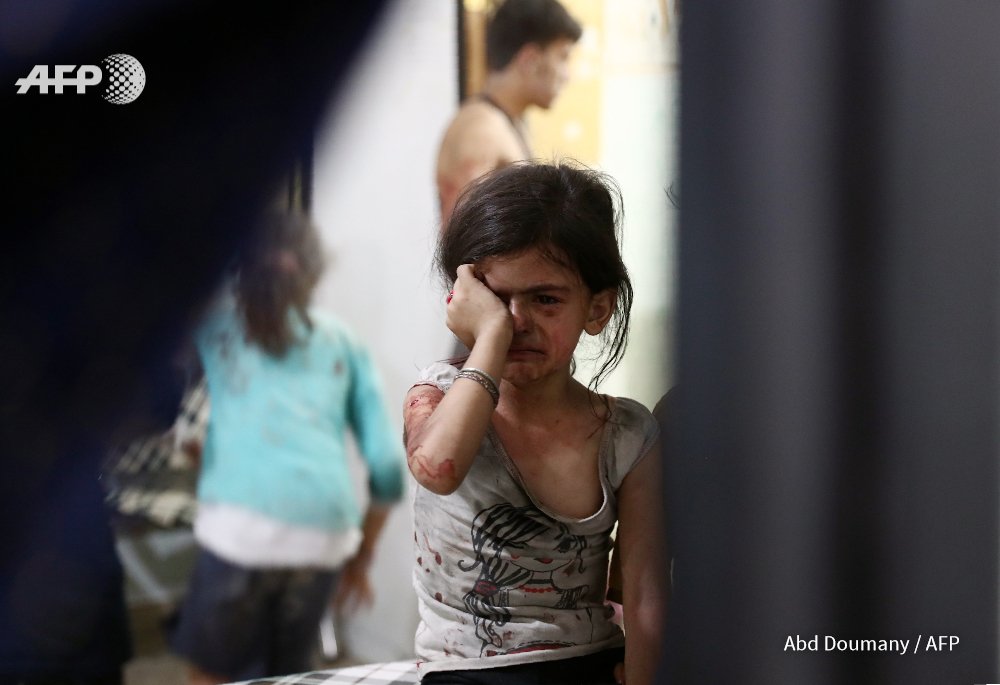




No comments:
Post a Comment